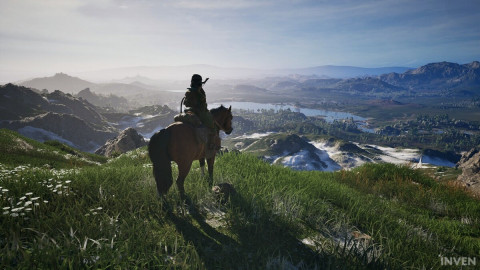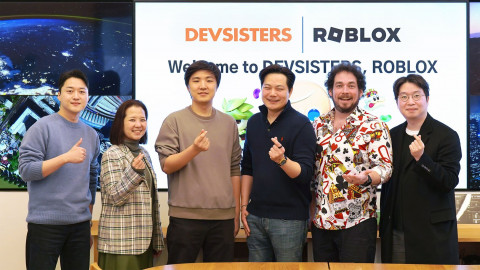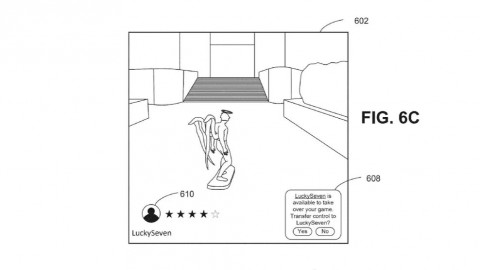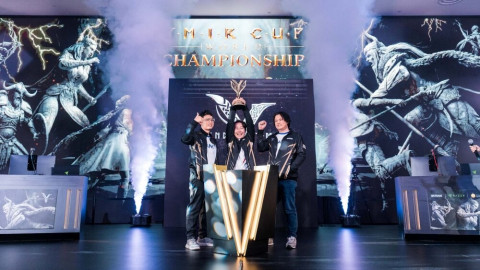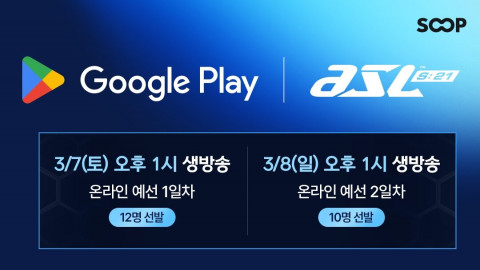Riot Games Michael Sherman, Head of College Esports in North America, revealed Riot's process in supporting collegiate Esports.
With six years of experience in organizing college Esports and 4 with Riot Games, Michael Sherman is one of the youngest collegiate Esports pioneers. Tasked with both connecting schools with Esports and organizing college level events, Michael is helping the ever so young collegiate Esport grow and expand.
Following the College Championship finals match on June 10th, Inven Global received the opportunity to sit down with Michael Sherman. Eager to hear how Riot Games goes about supporting collegiate Esports, we were able to obtain the answers to some of the critical questions.

¤ Could you quickly introduce yourself, please?
Yeah, sure. I am Michael Sherman. I am the head of College Esports efforts in North America for Riot Games.

¤ A few years ago, collegiate Esports was not taken as seriously as it is now. Now, there are definite steps defined for a college student to make his/her way to the professional scene. Could you give us a little background on how Riot Games stepped forward to develop this collegiate scene?
I have been with Riot for four years and have been working with Riot on college initiatives for almost 6. When Riot first approached this, it was just getting ahead on what students are already doing. I, personally, was playing League of Legends in college and playing competitively for my team. At the time, it was just us students getting together. I went to UT Dallas, and there was a school in UT Austin. We said we should play each other. This is just an example of what it was back then.
No one told us that we were the team for our school. We just made it with our friends and went from there. When I had officially joined with Riot in 2014, we had Robert Morris University give out scholarships to recruiting players. We still thought at the time that we were supporting something that players wanted to do, and the way players want to play. We never knew that people were willing to offer scholarship and recruit players. We weren’t planning on that. However, we helped encourage it.
Riot and I wanted to support what both school and players wanted to do. Soon after, schools found more reason to invest in their players. We found out more ways we could help. In other words, pour gasoline into the fire. We just wanted to amplify what was already out there. I believe it was a big stepping stone for us when we brought everything in-house. We started to own more of the college scene. We’ve been working with Collegiate Star League to help run those. We wanted to help grow the scene. Hence, we brought someone over from the LCS team to help operate the season and help build the league.
Now they are 70 schools offering scholarships. We hear that close to a 100 schools will be offered by the end of the year. We know that the scene is growing tremendously fast. That is why on the stage today, we have two varsity teams. It has just been this slow transition of club teams to a club and varsity team to last year we had the first varsity team win. This year, we have two varsity teams on that stage.
Those teams take it seriously. The schools hire people to help recruit the best talent. So, it is a long-winded way of saying; we never said this was what it was going to be. We supported what was going on in the community and was adaptive as the community needed us to be. It has always been a dream that we could play this role, but we are ever close to it now.
¤ Collegiate Esports seems to be following a trend much similar to that of traditional sports. Where do you see the development of collegiate Esports in the next year or 5 years?
We think a couple of things are going to happen. We believe that the caliber of players is going to continue to grow. In the first competition, I worked on; there was a Platinum player qualify for the final four. This year, we have all Masters and Challenger players. I expect that level of caliber of play to increase.
Second, there will be more schools that will get involved. Also, bigger brand named schools going along with Esports as well. I believe right now; there are a lot of small schools. The big schools that are doing it, in their point of view, are still taking a risk. In my opinion, it is not going to be long until there is a student who can say “I could go to Stanford, Ohio State, or Harvard to go play League of Legends.”. The option of “what I need to put on my resume?” and “where should I play League?’ does not exist today. We believe in the next 5-10 years; it could.

¤ Does Riot actively reach out to schools seeking collegiate Esports or do schools reach out to Riot?
It is a little bit of both. The way we try to help out is we look for schools that are doing something new with really ambitious plans. We then ask, “How could we help?” or “Do you want us to verify the logic behind the plans to make sure it is a good plan?”. At other times, we do not hear from some of the schools.
I spend my time going to panels to talk with other college administrators. To talk about what we really see in this space. Earlier this weekend, we invited out some colleges and college conferences that have all been thinking about the space or have done something already. We just shared an overview of what Riot has been seeing. This year, we are trying to be more vocal about helping universities to get things going.
When the first 20 schools started investing into collegiate Esports, we didn’t want to tell them what worked and what didn't. Simply because we didn’t know. Now that there are 70 schools, it is much easier to say “We have seen this consistent trend. If you want to be consistent, you need to hire a coach.”. Every team on this stage today has hired a coach. If schools want their players to play on their designated schedule, you need a place for them to practice and hold them accountable for being there. So, those are two nuggets of information that we are now confident in telling people.
On the other hand, we are seeing schools that are trying Interreral programs. Other schools are trying to run events. Some schools are asking what they could be doing for Freshman and supporting gaming more broadly at the university. So, there is still a lot of experimentation happening. We are trying to point these people to meet with other people. We want to share and connect everyone who is already doing work.
¤ As you said, you played League in college and found passion is developing collegiate Esports. Looking at the finals stage for the College Championships, you must feel amazing to see how far it has gotten.
I had a really cool moment this week. I saw this video of Western Ontario meeting their top laner for the first time in person. They have been playing with him all year but never met him in person (laughs). This was a reminder to me of a lot of my college days as well. I told this exact story to my team the night before the event started. We needed a new support player. I went to my school’s subreddit posting that we were looking for a support player. “PLATINUM ONLY! PLATINUM PLUS ONLY!”. Someone was interested and applied. We started playing with him and traveled to an event. That was the first time we met him. He got into my car, and we traveled to Austin. I still play with them from time to time. Whether it’d be League of Legends or other games, they are the ones I play games with.
Seeing that on Wednesday night was a reminder that collegiate Esports has really grown a lot. But at the same time, it has still stayed the same in the aspect of these guys are still trying to making friends. The game is just as much as part of their life as it was to mine. Although a lot of things have changed around it, ultimately as a player, it just continues to grow and is the coolest experience you can ever ask for in college.

¤ I would like to ask a bit of a fun question. If you were back in your college days but with the collegiate scene developed as it was now, would you eagerly go back into your team to reach for the championships?
Uh… no. I was always pretty bad at the game (laughs). I would always joke that I was always the bad player playing with good people. Eventually, I moved to “I guess I’ll help organize them and make sure they show on time to events.”. Shortly after, I started to organize their competition and the leagues we played in. That is how I ended up at Riot.
I never thought of what it would feel like to play on a stage like the College Championships. I would have loved to (laughs). The phrase we hear all the time is: “I wish this existed when I was a kid.”. I kind of have that more and more now. It has grown so much that I say to myself, “I want a cool facility to practice in…”. Definitely jealous now (laughs).
¤ Does Riot have any future plans to host collegiate Esports internationally?
Actually last year, Tencent hosted an international college championship. It was in China. It is exciting that it is one of the stages that North American can win on (laughs). Last year, we lost to China in the finals. Maryville and Toronto both went. Toronto ended up beating Maryville in a rematch. Afterwards, Toronto lost game 5 in the championship. It is happening. We don’t have any plans that we can talk about right now on how it is happening again next year. However, that team is excited on how it went. There are definitely more opportunities for international competitions.
¤ Lastly, is there anything you want to particularly say to your friends and family that have supported you so far? Also, could you tell us some of your personal goals for the collegiate Esports scene?
I could not be here without the support from my family and friends. When I played League in college with my friends, I loved to play, watch, and organize the games. I wanted to figure out what ways I could really do that. Eventually, Riot offered me a job. I had to drop out of college to take it. My parents were so supportive of me getting to this point. I came to Riot pretty young and was given a ton of responsibility. My co-workers and everyone I worked with told me that they are always supportive. “The sky is the limit”. Not to get too sentimental but everyone who has been apart of my League experience has been essential in helping me get to where I am today.

Sort by:
Comments :0


